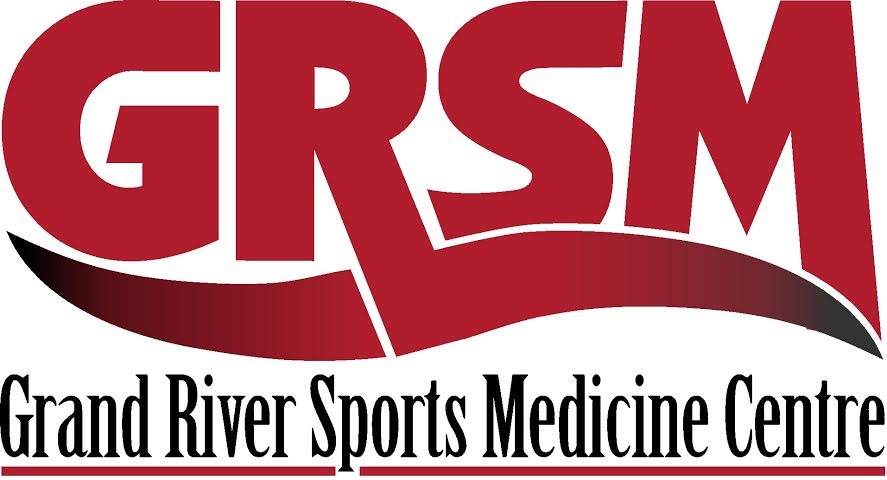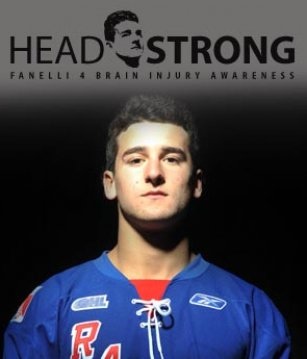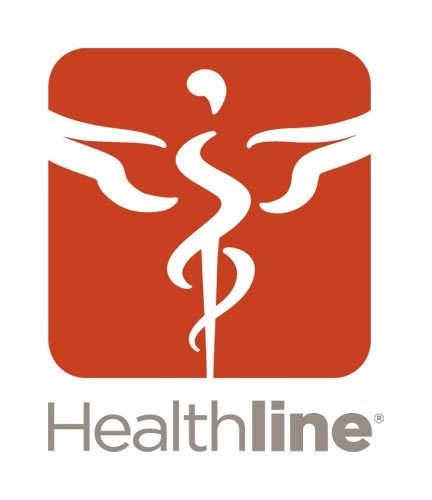Kitchener Minor Hockey with the help of the Province of Ontario are pleased to present the following concussion education videos!
Follow the Link and you will be asked to complete a brief form identifying that you have watched the video.
Concussion Video Registration
What is a concussion?
A concussion is a type of traumatic brain injury caused by a blow or bump to the head or body that transmits enough force to cause the brain to move rapidly back and forth within the skull. This movement – bouncing or twisting – of the brain within the skull can stretch or damage brain cells, and leads to chemical changes within the brain.
As a result, a concussion changes the way the brain functions, but doesn’t leave any structural damage that can be seen with medical imaging tests such as CT scans or MRI’s.
Signs and symptoms of concussion:
Symptoms reported by athletes:
· Headache or “pressure in the head”
· Nausea
· Dizziness or balance problems
· Blurry vision
· Sensitivity to light or noise
· Feeling “slowed down” or “in a fog”
· “Don’t feel right”
· Difficulty concentrating or memory
· Confusion
· Drowsiness or trouble falling asleep
· More emotional, more irritable, or more sad than usual
· Nervousness or anxiousness
Signs parents or coaches may notice:
· Appears dazed, stunned, or confused
· Change in on-ice performance
· Forgetful
· Moves clumsily
· Slow to answer questions
· Loss of consciousness
· Changes in behaviour, mood, or personality
What should I do if I think my athlete has a concussion?
If you notice concussion signs or your athlete reports one or more symptoms of concussion after a hit, bump, or jolt to the head or the body, they need to be removed from play. After this, you should:
1. Get medical attention – Talk to a medical professional with experience in assessing and treating concussions. They will help you develop a recovery plan, including when you child should return to school and sports.
2. Keep you athlete out of the game – After a concussion, you athlete shouldn’t return to play until a health care professional has cleared them. Concussions take time to heal, and returning to sport too soon places an athlete at a greater risk of a second concussion. Repeat concussion can be very serious.
3. Tell you athlete’s coaches and teachers – This will help them support your athlete through the concussion recovery process.
After a concussion, an athlete should only return to activity with the permission of a health care professional experienced in assessing and treating concussions.
How long until the concussion gets better?
Every concussion is different. Most children and teens recover from their concussions after a few weeks. However, occasionally, concussion symptoms can last longer, for several months or more, and impact many aspects of an athlete’s life – at home, at school, and at play. In these cases, a health care professional with experience treating concussions works with the athlete, the coach, and the parents to support the athlete and develop a plan for recovery.
I keep hearing about baseline concussion testing. What do I need to know?
Baseline testing for concussions is recommended by the Ontario Neurotrauma Foundation’s Guidelines for Pediatric Concussion as an annual test for any child in organized sports. This type of testing is done pre-season and combines physical and neurocognitive assessment tools. It is designed to provide a pre-injury picture of how your athlete performs. If an athlete sustains a concussion during the season, the results of their baseline test are used to help decide when the athlete can return to school and sports.
Did you know?
· Most concussions occur without loss of consciousness
· Athletes who have experienced one concussion are at increased risk for another concussion
· Young kids and teenagers are more likely than adults to get a concussion, and to take longer than adults to recover
Resources
GRSM www.grsm.ca
Grand Rivers Sports Medicine Centre is committed to providing high-quality, comprehensive assessment and treatment of concussions. Our sports medicine physicians, chiropractors, and physiotherapists have extensive training in concussion assessment and treatment and work hard to return athletes to sport as safely and quickly as possible.
Holland Bloorview www.hollandbloorview.ca
Holland Bloorview Kids Rehabilitation Hospital’s Concussion Centre is dedicated exclusively to research and treatment of pediatric concussions. They have published Concussion & You, A Handbook for Parents and Kids to help with concussion management and recovery.
Parachute www.parachutecanada.org
Formerly known as ThinkFirst, Parachute Canada is a national charitable organization dedicated to injury prevention. They have excellent, evidence-based information for parents, educators, coaches, and athletes about concussion and a variety of other injuries.
EMPWR Foundation www.empwr.ca
EMPWR was founded in part by Ben Fanelli, former Kitchener Ranger, to advance recovery from concussion injuries. They support people as they get back to sport and back to themselves.
Dr. Mike Evans Videos – search “Dr. Mike Evans Concussion” on YouTube
Dr. Mike Evans is a Canadian physician dedicated to spreading the word about a variety of important health topics. His organization, Evans Health Lab, creates engaging whiteboard videos, and he has three that are excellent resources for families dealing with concussions.
Produced in partnership with Dr. Trevor Hall and Meaghan Adams, PT, from GRSM’s Sport Concussion Program
Grand River Sports Medicine

website: http://www.grsm.ca
Their mission is to help athletes and active individuals achieve their sports and exercise goals. They are committed to providing the best sports medicine services possible, with a compassionate and caring attitude. By focusing on the identification, treatment and prevention of exercise-related injuries and conditions, multi-disciplinary team of knowledgeable and certified professionals enables our clients to succeed. Their ultimate priority is to help the clients fulfill their active lifestyle pursuits
facebook (facebook.com/GRSMbook) twitter (@GRSM_ca)
Educational material on concussions:
http://www.grsm.ca/wp-content/uploads/Concussions-Neurocognitive-Testing.pdf
http://www.grsm.ca/wp-content/uploads/Concussions-Prevention.pdf
http://www.grsm.ca/wp-content/uploads/ConcussionBrochure_new_.pdf
GRSM-Cambridge http://www.grsm.ca/cambridge/
Address: 40 George Street North, Cambridge, Ontario N1S 2M8
Phone: (519) 622-4529
Fax: (519) 622-3563
Email: [email protected]
GRSM Kitchener – South http://www.grsm.ca/kitchener-south/
Address: 700 Strasburg Road, Kitchener, Ontario N2E 2M2
Phone: (519) 571-7111
Fax: (519) 571-8145
Email: [email protected]
GRSM Kitchener – Downtown http://www.grsm.ca/kitchener-downtown/
Address: 16 Andrew Street, Kitchener, Ontario N2H 5R2
Phone: 519-804-9164
Fax: 519-804-9698
Email: [email protected]
 Head Strong
Head Strong
On October 30, 2011 Ben was hit to the head causing him to have a fractured skull during a game against the Erie Otters.
Ben Fanelli knows this first hand. And that is why he teamed up with the Kitchener Rangers to start Head Strong; Fanelli 4 Brain Injury Awareness: a program designed to raise awareness about brain injuries.
For more information visit this website: http://www.kitchenerrangers.com/page/head-strong
This is also another website where Ben gives you some advice on what to do about head injuries.
website: http://ca.sports.yahoo.com/blogs/jrhockey-buzzing-the-net/kitchener-rangers-ben-fanelli-offers-advice-brain-injury-162907655.html
Kitchener Rehabilitation Clinic
website: http://www.kitchenerrehab.ca
Kitchener Rehabilitation Clinic, provides the latest in rehabilitation services utilizing a multidisciplinary approach for restoration of physical function. They offer massage therapy, acupuncture, custom orthotics, chiropractic and physiotherapy.
It is located on 101- 751 King St. West, Kitchener, Ontario.
Brain Injury of Waterloo-Wellington
website: http://www.biaww.com
It is a registered not-for-profit charity that provides support, advocacy, and programs to survivors of acquired brain injury (ABI) and educational programs to the children and youth in the community of Waterloo Region and Wellington County.
This website here will tell you different types of brain injuries. It will also give you more in depth detail of concussions.
It is located on 607 King St W, Kitchener, Ontario
Health Line 
Website: http://www.wwhealthline.ca/listServicesDetailed.aspx?id=10385®ion=Kitchener
This website is for anyone to use. If you go here you can click different areas in Ontario. It will give you a list of website and contact information on different types of Acquired Brain Injury places you can visit for information or to go to get help.
Ontario Brain Injury Association
website: http://obia.ca/
It is a provincial not-for-profit, charitable organization. Their mission is to enhance the lives of Ontarians living with the effects of acquired brain injury (ABI) through education, awareness and support.
Think First
It is a national non-profit organization dedicated to the prevention of brain and spinal cord injuries. Celebrating over nineteen years in operation. ThinkFirst teaches school-aged children and youth, sports teams, and community volunteers, to safely participate in the activities they enjoy.
website: http://www.thinkfirst.ca/programs/concussion.aspx
Kids Health
website: http://kidshealth.org/teen/safety/first_aid/concussions.html
KidsHealth is more than just the facts about health. As part of The Nemours Foundation's Center for Children's Health Media, KidsHealth also provides families with perspective, advice, and comfort about a wide range of physical, emotional, and behavioral issues that affect children and teens.
Visit this website to get more in depth information about concussions. It tells you about different injuries you can get from a concussion, how to deal with them and much more.
Heads Up
Free online course to teach you about concussions. It trains you on figuring out if someone has a concussion. It is to tell the difference in children, and adults. It is a free online course to train you and give you information about the different aspects of a concussion. It is found from the CDC Sports.
To view it, visit this website: http://www.cdc.gov/concussion/sports/
Coaching Association of Canada
website: http://www.coach.ca/concussion-awareness-s16361
Coaches can visit this website for concussion awareness. They can use it as a resource. The site has different learning modules that you can go through as well.
Different Tips to Help Prevent Concussions
- make sure everyone is aware of concussions and how they occur
- buy a proper sized helmet
- wear a mouth guard
- neck strengthening exercises
Concussions can have late life effects
- neurodegenerative disease called chronic traumatic encephalopathy (CTE) in the brains of deceased athletes who either experienced multiple concussions or played positions where they were exposed to frequent impacts
http://www.brainfacts.org/diseases-disorders/injury/articles/2012/hard-knocks-the-science-of-concussions/